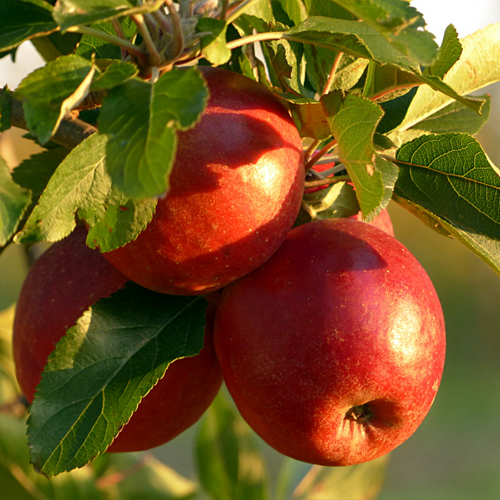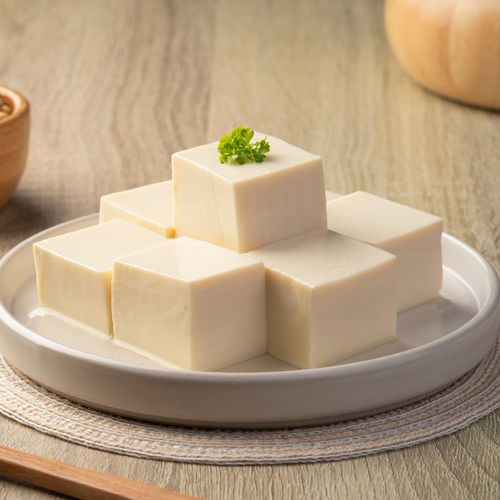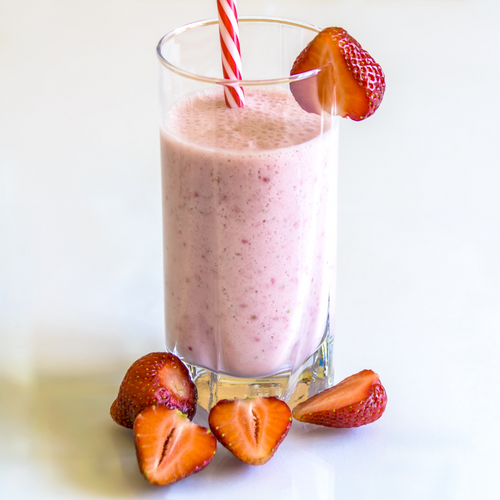What you must remember :
The intestinal microbiota corresponds to all the microorganisms present mainly in the intestine and the colon.
It regulates many essential functions of the body
It is responsible for the proper functioning of the digestive, immune, metabolic and cerebral systems.
Providing good bacteria called probiotics and fiber helps support this intestinal flora.
A balanced lifestyle helps reduce the risk of dysbiosis or microbiota imbalance.
The intestinal microbiota corresponds to a set of microorganisms which mainly inhabit our intestines. This is the most populated microbiota in our body with 10,000 to 100,000 billion microorganisms including bacteria, viruses, fungi and non-pathogenic parasites with numerous functions.
Development and evolution of the intestinal microbiota
Before being born, in the mother's womb, the baby has a sterile environment. No bacteria is in contact with it. It is at birth that he discovers this non-sterile environment and that he is showered with bacteria. The intestinal microbiota is gradually formed and thousands of microorganisms begin to populate the digestive system by depositing on the intestinal wall .
The route through which the baby comes out has a first impact on its microbiota. Indeed, if the birth takes place vaginally, the baby will be covered in bacteria from the mother's vaginal flora, which immerses him favorably in our world. On the other hand, if the delivery takes place by cesarean section, the baby is deprived of this protection. This is why more and more professionals are compensating for this by coating the baby with this flora.
Subsequently, breastfeeding, if implemented and possible, also helps provide good bacteria. At the age of 3, the microbiota reaches maturity even if its evolution is constant throughout life. Indeed, it evolves according to lifestyle, hygiene, drug treatments taken during life, diet, where we live, physical activity, mental health but also the people we live with. let's kiss. It is therefore unique and specific to each individual.
Roles and functions of the intestinal microbiota
The intestinal microbiota regulates virtually all of our health. It is involved in numerous digestive, metabolic, immune and brain functions. We now know that these bacteria have an influence on our weight, our allergies, our immune system and even our behavior!
Intestinal microbiota and digestive system
The intestinal microbiota is nourished by the non-digestible nutrients that we provide it. It also promotes the assimilation of nutrients. Thanks to this, it ensures proper functioning of the digestive system. In fact, our digestive system has 200 million neurons. It was long thought that it was the brain that “talked” to the intestine. We are beginning to understand that the gut speaks just as much to the brain.
Intestinal microbiota and immune system
The intestinal microbiota constitutes 80% of our immune system . Indeed, our microbiota is in close communication with the immune system. It makes it possible to positively or negatively modulate the production of inflammatory and immune molecules.
In addition, due to its location, it acts as a protective barrier against the entry of pathogens into the body. It also acts on this system by producing molecules or active ingredients with a bactericidal effect.
Gut microbiota and inflammation
Compounds produced by the intestinal microbiota such as short-chain fatty acids have numerous benefits for the body, including modulating the production of immune cells and inflammatory compounds. This helps strengthen the intestinal wall and provides a real shield against attacks around the intestinal mucosa. Through their communication with the immune system, bacteria can cause or prevent inflammation . Remember that inflammation is essential in the event of infection because it is what allows the influx of immune cells to the affected site in order to destroy pathogenic organisms and repair damaged tissues.
How to promote a good intestinal microbiota
Preserve your overall health for a good intestinal microbiota
Taking care of your health means above all regulating and supporting your intestinal microbiota. A balanced lifestyle is essential. This is why regulating your emotions, balancing your diet by providing sufficient nutrients, practicing regular physical or sporting activity and avoiding highly polluted environments are essential principles for a balanced microbiota.
In addition, taking antibiotics or certain drug treatments can alter the diversity of this microbiota. This is why taking additional probiotic treatments can help and support this flora.
Diet to take care of your intestinal microbiota
Food is the primary source of preserving the well-being of our digestive system and our microbiota. What we eat directly influences the richness and diversity of our intestinal microbiota. Our intestine loves certain fibers called prebiotics . These fibers are complex carbohydrates that are not digested by the intestine and they feed our good bacteria which multiply. This allows them to better fulfill their missions:
-
Vitamin production
-
Maintaining the immune system in good condition
-
Boost metabolism functions to prevent weight gain
In addition to feeding good bacteria, fiber also activates all intestinal functions related to digestion and transit! Each species of bacteria preferentially digests one fiber over another, hence the importance of varying fiber sources. Foods rich in prebiotics are mainly plants (endives, asparagus, leeks, etc.) and fruits (bananas, apples, grapefruits, red fruits, grapes, etc.) but they are also found in whole grains, pulses, and oilseeds. .
Apart from foods rich in fiber, there are also foods rich in probiotics which will provide a small portion of beneficial bacteria for the intestinal microbiota.
Balancing your microbiota with DIJO probiotics
An unbalanced intestinal microbiota?
An imbalance in the intestinal microbiota , which results in an increase in bad bacteria compared to good bacteria, contributes to the appearance of numerous disorders, such as: transit disorders, digestive discomfort such as abdominal pain and cramps, gas and bloating, less resistance to external aggressions, an imbalance of the immune system. This imbalance is also called dysbiosis , and results in more or less porosity of the intestinal wall . It can also increase the risk of the occurrence of various pathologies and generalized inflammation of the body.
The action of probiotics on the intestinal microbiota
Probiotics are beneficial bacteria that support our own good intestinal bacteria, which inhabit our digestive tract and particularly our colon. Good probiotics thus make it possible to strengthen the intestinal microbiota and fight against the disappearance of certain populations of essential and protective bacteria in favor of pathogenic populations which can proliferate. Among these good bacteria, we find lactobacillus and bifidobacterium .
Our L'Indispensable probiotics treatment allows you to stock up on these good bacteria and thus maintain the balance of your intestinal microbiota for benefits for your overall health! We advise you to integrate it into your lifestyle, 4 times a year, at each change of season, to promote overall well-being.
Sources :
[1] INSERM, 2021, Intestinal microbiota (intestinal flora), consulted from https://www.inserm.fr/dossier/microbiote-intestinal-flore-intestinale/
[2] Chang, C.; Yuan, X.; Zhang, X.; Chen, X.; Li, K. Gastrointestinal Microbiome and Multiple Health Outcomes: Umbrella Review. Nutrients 2022, 14, 3726. https://doi.org/10.3390/nu14183726
[3] Hashem, NM; Gonzalez-Bulnes, A. The Use of Probiotics for Management and Improvement of Reproductive Eubiosis and Function. Nutrients 2022, 14, 902. https://doi.org/10.3390/nu14040902
[4] Bodke, H., & Jogdand, S. (2022). Role of Probiotics in Human Health. Cureus, 14(11), e31313.https://doi.org/10.7759/cureus.31313
[5] Al Bander, Z., Nitert, M.D., Mousa, A., & Naderpoor, N. (2020). The Gut Microbiota and Inflammation: An Overview. International journal of environmental research and public health, 17(20), 7618. https://doi.org/10.3390/ijerph17207618



















